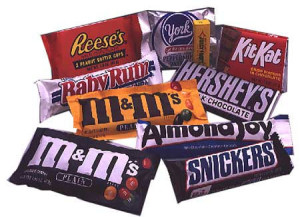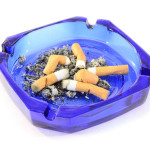While you love your dear dog and want him to have the healthiest of diets, it’s important to know which foods to consume and which must be avoided at all costs. In fact, there are specific foods which are toxic to dogs. Whether its grapes or cabbage or extensive table scraps or bread dough be aware of the list below as toxic food for dogs … in other words, what not to feed!
We’ll start with human food. Baby food can contain onion powder, which can be toxic to dogs. In addition, it can result in nutritional deficiencies especially if fed in large amounts. Simply stated, it’s best to avoid since this could be toxic to dogs. That’s why it’s called baby food and not dog food.
Table scraps in large amounts could be classified as toxic food for dogs. Why? Because they’re not nutritionally balanced. They should never be more than 10% of your dog’s diet. Fat should be trimmed from meat and bones should definitely not be fed. Cooked meat and cooked fats are carcinogenic to dogs.
Bones from fish and cooked bones can obstruct the digestive system. Not good!
Chocolate, coffee, tea, and caffeinated drinks are bad. They contain caffeine which could be toxic and impact the heart and nervous systems.
Citrus oil extracts result in vomiting. Stay away!
Grapes and raisins contain unknown toxins which can do damage to the kidneys. Definitely considered toxic food for dogs.
Large amounts of cooked liver cause Vitamin A toxicity, which impacts muscles and bones. Yet another item which is toxic to dogs.
Macadamia nuts, like grapes and raisins, contain unknown toxins.
Spoiled food and garbage – just don’t go there. Definitely considered toxic for dogs.
Mushrooms can result in shock and cause death.
Alcohol can result in coma and death.
Bread dough can result in a bloated belly and then disorientation and vomiting. Since it yeast that hasn’t risen yet, you do not want it to expand in Fido’s belly, much less get stuck in the intestines! This, like the other items on the list, could be toxic to dogs.
Onions and garlic, whether it’s raw, cooked, or powder in large amounts have the ability to damage red blood cells and cause anemia.
As for chemicals, dogs need to be kept away from all antifreeze spills since this could be hazardous and toxic to dogs. While the sweet smell and taste may be attractive to his sensitive nose, if your dog consumes any amount of antifreeze, rush him immediately to the veterinarian. (Check your garage and driveway for spills and clean these up before your pet has a chance to smell and potentially ingest this!)
Xylitol is a sugar-alcohol sweetener contained in chewing gum and candy. Seizures, lethargy and weakness are the result if dogs consume significant amounts of this chemical.
Ibuprofen, like antifreeze, may smell sweet. Dogs will eat it if they’re found lying on the floor and don’t be surprised if your dog tries to chew threw a bottle to eat the entire contents. This is definitely toxic to dogs. It causes ulceration and perforates the lining of the stomach, and decreases the blood flow to the kidneys. Yet again, toxic to dogs.
And keep the above mentioned foods and chemicals in mind to prevent your dog from consuming toxins. At The Dog Bowl, nothing is more important than your pets’ health and well being. For more information about foods and chemicals which are toxic to dogs or if you think your dog could have ingested a toxic substance please contact your local vet as soon as possible.
Q. Which foods could be dangerous for my dog?
A. Some foods which are edible for humans, and even other species of animals, can pose hazards for dogs because of their different metabolism. Some may cause only mild digestive upsets, whereas, others can cause severe illness, and even death. The following common food items should not be fed (intentionally or unintentionally) to dogs. This list is, of course, incomplete because we can not possibly list everything your dog should not eat.
1. Alcoholic beverages – Can cause intoxication, coma, and death.
2. Avocado – The leaves, seeds, fruit, and bark contain persin, which can cause vomiting and diarrhea.
3. Bones from fish, poultry, or other meat sources – Can cause obstruction or laceration of the digestive system.
4. Cat food – Generally too high in protein and fats.
5. Chocolate, coffee, tea, and other caffeine – Contain caffeine, theobromine, or theophylline, which can cause vomiting and diarrhea and be toxic to the heart and nervous systems.6. Citrus oil extracts – Can cause vomiting.
7. Fat trimmings – Can cause pancreatitis.
8. Fish (raw, canned or cooked) – If fed exclusively or in high amounts can result in a thiamine (a B vitamin)deficiency leading to loss of appetite, seizures, and in severe cases, death.
9. Grapes, raisins and currants – Contain an unknown toxin, which can damage the kidneys. There have been no problems associated with grape seed extract.
10. Hops – Unknown compound causes panting, increased heart rate, elevated temperature, seizures, and death.
11. Human vitamin supplements containing iron – Can damage the lining of the digestive system and be toxic to the other organs including the liver and kidneys.
12. Macadamia nuts – Contain an unknown toxin, which can affect the digestive and nervous systems and muscle.
13. Marijuana – Can depress the nervous system, cause vomiting, and changes in the heart rate.
14. Milk and other dairy products – Some adult dogs and cats may develop diarrhea if given large amounts of dairy products.
15. Moldy or spoiled food, garbage – Can contain multiple toxins causing vomiting and diarrhea and can also affect other organs.
16. Mushrooms – Can contain toxins, which may affect multiple systems in the body, cause shock, and result in death.
17. Onions and garlic (raw, cooked, or powder) – Contain sulfoxides and disulfides, which can damage red blood cells and cause anemia. Cats are more susceptible than dogs. Garlic is less toxic than onions.
18. Persimmons – Seeds can cause intestinal obstruction and enteritis.
19. Pits from peaches and plums – Can cause obstruction of the digestive tract.
20. Raw eggs – Contain an enzyme called avidin, which decreases the absorption of biotin (a B vitamin). This can lead to skin and hair coat problems. Raw eggs may also contain Salmonella.
21. Raw meat – May contain bacteria such as Salmonella and E. coli, which can cause vomiting and diarrhea.
22. Rhubarb leaves – Contain oxalates, which can affect the digestive, nervous, and urinary systems.
23. Salt – If eaten in large quantities it may lead to electrolyte imbalances.
24. String – Can become trapped in the digestive system; called a “string foreign body.”25. Sugary foods – Can lead to dental problems, and possibly diabetes mellitus.
26. Table scraps (in large amounts) – Table scraps are not nutritionally balanced. They should never be more than 10% of the diet. Fat should be trimmed from meat; bones should not be fed.
27. Tobacco – Contains nicotine, which affects the digestive and nervous systems. Can result in rapid heart beat, collapse, coma, and death.
28. Yeast dough – Can expand and produce gas in the digestive system, causing pain and possible rupture of the stomach or intestines.
29. Xylitol (artificial sweetener) – Can cause very low blood sugar (hypoglycemia), which can result in vomiting, weakness and collapse. In high doses can cause liver failure.


